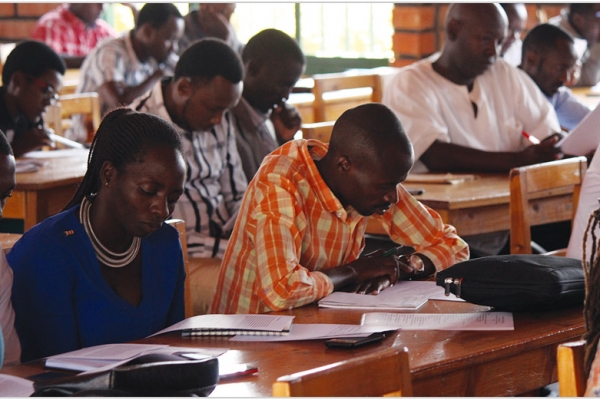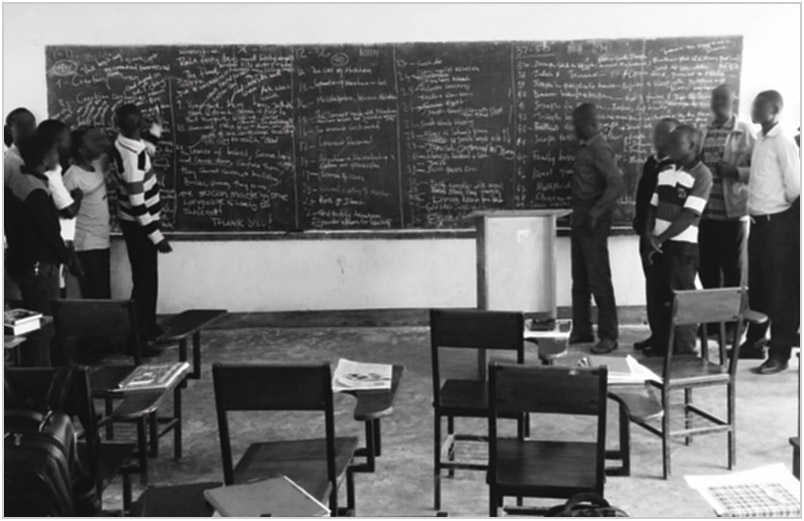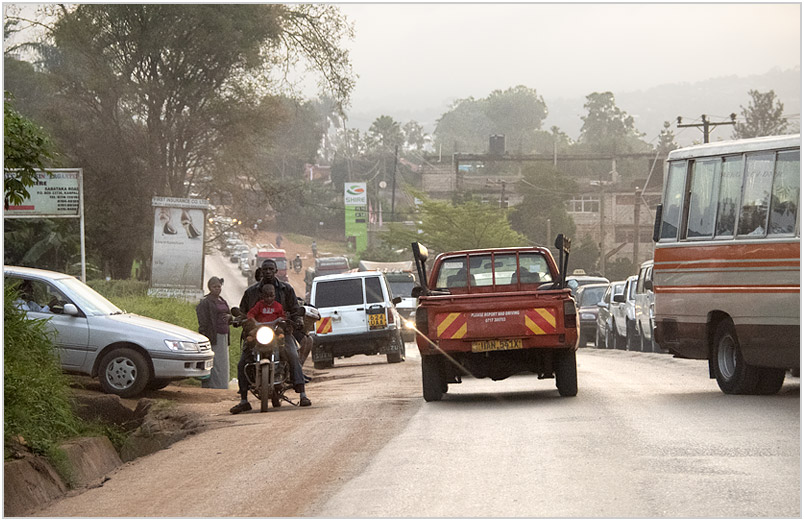
The Worth and the Cost
We’ve all made sacrifices to be here. This concrete room with a chalky blackboard and one always-off lightbulb serves as host to a powerful conversation. The course is Pentateuch, a 16-week look at the first five books of the Bible. It took me over an hour to drive through Kampala to the gates of the university. I won’t be done until noon, and I won’t be home until 1:00 or so. It’s a sacrifice in the middle of my week, but it’s worth it. Actually, it’s not really a sacrifice—at least, not compared to those of my students.
As I draw their attention to God’s word choice toward Abraham, I say something like, “Do you notice how God referred to Isaac as Abraham’s ‘only beloved son’?” The room nods. I ask them, “Why do you think God chose those specific words?” One man says, “God isn’t asking Abraham to do something that He himself is unwilling to do. They both put their sons on the line.” Several students glance at a South Sudanese man who takes notes by the door. Unaware, I continue teaching.
Several weeks later, I’m interviewing the students about their lives leading up to this course and the education they desire. The South Sudanese man leans toward me and speaks softly, “As a pastor, I make no money here. I’ve been unable to provide healthcare for my family because God has called me to this work. As a result, I’ve lost three sons.” I was speechless. As I looked around the room, instead of shock, I saw eyes full of agreement. Their faces said something completely foreign to my experience in life. It was as if they were all fully comprehending this horrific statement, and I was the only one left without words. After a few moments, I asked them, “Is this common?” The room responded, “Yes.”

As the only Westerner in the room, I was immediately hit with a feeling of inadequacy in my position as the so-called “leader.” What right do I have to lead this group of students and pastors who know the call of God in this way? In my house is a painting of a lion with a quote from The Lion, the Witch, and the Wardrobe. It reads: “Safe? Who said anything about safe? ‘Course he isn’t safe. But he’s good. He’s the King.” It hangs in a place where I see it every day. In that moment in the concrete room, I realized my reading of that quote is far different than theirs. I have four children. I still have them.
As the interview continued, I began to hear stories about families and relationships. I noticed that many of these pastors from East African countries were either currently rejected by their families or were in the process of trying to heal relationships from prior rejection. I asked them, “How many of you have been rejected by your family for saying yes to the call of God?” All hands were raised as the room replied, “I have.” I listened to their response as I thought about my family. “We’re so proud of you, son.” My parents say this all the time.
On the drive home that day, I dodged potholes and rifled through the baggage of a weighty interaction. I felt self-conscious and nervous about how I was perceived. I felt inadequate and out of place. The sacrifices of these men and women were beyond my comprehension, so my mind raced to justify and rationalize the value of my own story. “Well, I was born somewhere else,” I mumbled in an ego-soothing tone. “If I were born here, who knows.”
I thought about some of the other stories. A young student’s Muslim father brought in the imam to sit in their living room and talk him into rejecting Christianity when he was just a young teen. When he refused, the imam left and the father threw the boy out of the house. They haven’t spoken since.
During another class, I continued listening to these stories in the concrete room, and I wondered how they could have held on to faith with such passion and certainty. I asked them, “When you think about everything God’s call has cost you, is it still worth it?” I expected them to wrestle with the question and discuss their struggles with faith and doubt. I expected them to speak of the power of the Church community in helping and holding them. While all these things may have been true, I didn’t hear them. I just heard a unanimous, “Yes, it’s worth it.” One man added, “I have come to learn that anything worth something, costs something.”

On the bumpy ride home, I replayed that phrase again and again. Anything worth something, costs something. I realized that the order of the statement is fundamental. The worth comes first. In many ways, I’ve lived my life following Christ, saying yes with the cost coming before the worth. I think about my life as the cost that earns something of “worth.” I soothe the pain of the cost with the thought, “Well, this will pay off in the end.” I didn’t see this mindset in the students. I’m sure they feel a sense of hope in the future, but I saw them paying the cost for something that was already of worth. Anything worth something, costs something. In other words, because Christ is of such worth, we are happy to “cost” for it. When they said yes, they had already received the worth they desired. As a result, the cost was viewed not as a transaction but as an expression of worship. The beloved son. The Muslim father. These are counted costs offered as worship to a worthy God.
I can only say yes to the here and now. What is God asking me to do right now? His worth in my life creates in me a desire to worship Him by paying the cost in the form of a yes. It’s true that it costs more for some than others. This world is a broken, unfair, and painful place to live where one yes brings fruit upon fruit and another yes costs three sons. I cannot say yes to anything other than the step in front of me. Regardless of where that step leads, I pray that God continues calling and costing, because He’s worth it.
Action Steps
PRAY: Pray for the pastors of East Africa as they continue in the call God has put before them. Pray for the health and protection of their children. Pray for the salvation of their extended family and for healing in broken relationships.
GIVE: You can be a part of encouraging pastors in their training in East Africa. Please visit www.wgm.org/pastoral-training to give and for more information.
Nathan Metz lives in Uganda with his wife, Jade, and their four children.
The Call (Fall/Winter 2018)
